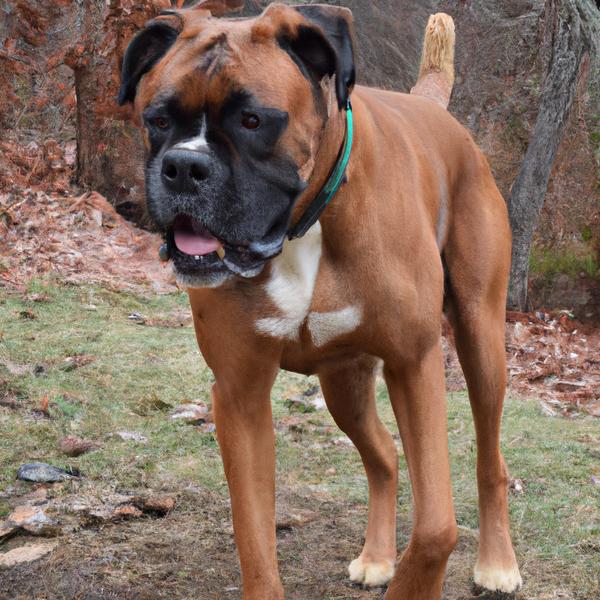Boxer Shepherd vs. German Wirehaired Pointing Vizsla: Breed Differences and Similarities
Hypoallergenic
Are Boxer Shepherds or German Wirehaired Pointing Vizslas hypoallergenic, or neither?
Unfortunately, neither Boxer Shepherd nor German Wirehaired Pointing Vizsla are hypoallergenic, which may not make them the best choice for dog lovers who suffer from pet allergies.
Temperament
What are the personalities of Boxer Shepherd and German Wirehaired Pointing Vizsla dogs?
Curious
Playful
Energetic
Alert
Courageous
Intelligent
Confident
Friendly
Obedient
Loyal
Fearless
Watchful
Brave
Bright
Active
Playful
Energetic
Protective
Intelligent
Friendly
Responsive
Affectionate
Loyal
Lively
Gentle
Trainable
Companionable
Cheerful
Quiet
Easygoing
Willful
Willing
Evenly Tempered
Shedding Level
Do Boxer Shepherds shed more than German Wirehaired Pointing Vizslas, or which breed sheds more, Boxer Shepherds or German Wirehaired Pointing Vizslas?
Boxer Shepherds are heavy shedders, but regular brushing can help manage shedding and promote a healthy coat.
German Wirehaired Pointing Vizslas are moderate shedders, but regular brushing can reduce shedding and maintain coat health.
Ancestry
What are the origins of Boxer Shepherd and German Wirehaired Pointing Vizsla breeds?
German Shepherd, Boxer
German Wirehaired Pointer, Vizsla
Date of Birth
When were Boxer Shepherd and German Wirehaired Pointing Vizsla breeds first developed?
Unknown
Eye Color Possibilites
What are the eye colors of Boxer Shepherd and German Wirehaired Pointing Vizsla dogs?
Brown
Brown
Amber
Nose Color Possibilites
What are the natural nose colors of Boxer Shepherd and German Wirehaired Pointing Vizsla?
Black
Black
Brown
Coat Color Possibilites
What are the natural colors of the coat for Boxer Shepherd and German Wirehaired Pointing Vizsla breeds?
Brown
Brindle
Red
Brown
Coat Length
What is the typical coat length for Boxer Shepherd and German Wirehaired Pointing Vizsla breeds?
Boxer Shepherds have medium-length coats.
German Wirehaired Pointing Vizslas have coats that can be either short or medium in length.
Coat Density
What is the density of the coat of Boxer Shepherd and German Wirehaired Pointing Vizsla?
Coat Texture
What is the hair texture of Boxer Shepherd and German Wirehaired Pointing Vizsla?
Straight
Wiry
Litter Size
What is the usual litter size for Boxer Shepherd and German Wirehaired Pointing Vizsla?
Boxer Shepherd and German Wirehaired Pointing Vizsla, can have a litter of 6-10 puppies each on average. Nonetheless, it's important to keep in mind that litter size can differ significantly between individual dogs. Various factors such as the mother's health, breeding history, and genetics can have an impact on litter size.
Adaptability
Boxer Shepherd and German Wirehaired Pointing Vizslas are known for their adaptability and versatility. They are capable of adapting well to a wide range of lifestyle changes and living environments, making them great companions for families and individuals of all lifestyles.
Health Issues
Between Boxer Shepherd and German Wirehaired Pointing Vizsla, which breed is more prone to health problems?
Boxer Shepherds typically have low vet costs due to their good health, but it's important to monitor their health and seek vet care when necessary.
While the German Wirehaired Pointing Vizsla breed is generally healthy, occasional vet check-ups are still necessary to address any health concerns.
Major Concerns
What are the major health concerns for Boxer Shepherd and German Wirehaired Pointing Vizsla breeds?
Panosteitis
Hip Dysplasia
Pannus
Perianal Fistulas
Hemophilia
Degenerative Myelopathy
Exocrine Pancreatic Insufficiency
Subaortic Stenosis
Elbow Dysplasia
Hip Dysplasia
Inflammatory Bowel Disease
Minor Concerns
What minor health issues should be kept in mind when owning Boxer Shepherd and German Wirehaired Pointing Vizsla?
Intervertebral Disc Disease
Eye Disease
Cervical Vertebral Instability
Cutaneous Asthenia
Pyoderma
Ear Infections
Progressive Retinal Atrophy (PRA)
Occasional Tests
What occasional tests are recommended for Boxer Shepherd and German Wirehaired Pointing Vizsla breeds?
cardiac and hip, blood and eye exams
X-Rays
Ear Examination
Blood Chemistry
Complete Physical Examination
Otoscopic Examination
Social Needs
Boxer Shepherd vs German Wirehaired Pointing Vizsla social needs comparison
Boxer Shepherd and German Wirehaired Pointing Vizsla have above average social needs compared to other breeds. They thrive in environments where they have a lot of interaction with humans and other dogs.
Sleeping Need
Which of the two sleeps the most/least: Boxer Shepherd or German Wirehaired Pointing Vizsla?
Boxer Shepherd and German Wirehaired Pointing Vizsla are active dogs that may not require as much sleep as other breeds. However, they still need enough sleep to stay healthy.
Mouthiness
Mouthiness Comparison: Boxer Shepherd vs German Wirehaired Pointing Vizsla?
Roaming urge
Boxer Shepherd vs Labrador: Running away tendency?
Prey Drive
Boxer Shepherd or German Wirehaired Pointing Vizsla - which breed has a higher level of prey drive?
Activity Level
Which breed has higher energy, Boxer Shepherds or German Wirehaired Pointing Vizslas?
Boxer Shepherd and German Wirehaired Pointing Vizsla are high-energy dogs that require a lot of mental and physical exercise. Without proper stimulation and attention, these breeds can become problematic. If you're considering these breeds, be prepared to invest time and effort in their exercise and training.
Tolerance of being left alone
Walks per Week
How many miles should Boxer Shepherd or German Wirehaired Pointing Vizsla walk each week?
There's really no limit to how far you walk your dog as long as they're comfortable. For Boxer Shepherd, it's at least 12 miles / week. Just remember to build distance and stamina gradually over time.
There's really no limit to how far you walk your dog as long as they're comfortable. For German Wirehaired Pointing Vizsla, it's at least 14 miles / week. Just remember to build distance and stamina gradually over time.
Activity per Day
Do Boxer Shepherds or German Wirehaired Pointing Vizslas require more exercise?
In general most Boxer Shepherds usually need at least 60 minutes of exercise daily. This can be spread across the day and include all sorts of high-energy activities, like walking, running and playing.
In general most German Wirehaired Pointing Vizslas usually need at least 120 minutes of exercise daily. This can be spread across the day and include all sorts of high-energy activities, like walking, running and playing.
Grooming
Which breed is easier to maintain in terms of grooming, Boxer Shepherds or German Wirehaired Pointing Vizslas?
Boxer Shepherd and German Wirehaired Pointing Vizsla are breeds of dogs that are known for their low grooming needs.
Brushing Frequency
What is the recommended brushing frequency for Boxer Shepherd and German Wirehaired Pointing Vizsla dogs?
Boxer Shepherd and German Wirehaired Pointing Vizsla should be brushed at least once a week. Of course, you can give them more frequent brushes if you find that they are still shedding a lot.
Brushing Tools
What brushing tools are used for Boxer Shepherds and German Wirehaired Pointing Vizslas?
Comb
Nail Clipper
Slicker Brush
Nail Clipper
Cups
How much food should be given to Boxer Shepherd or German Wirehaired Pointing Vizsla in cups?
Boxer Shepherd and German Wirehaired Pointing Vizsla share the same recommended daily food intake of 3 cups, although the appropriate quantity may vary depending on the quality and nutritional content of their food.
Daily Cost
Which breed has a higher daily cost, Boxer Shepherd or German Wirehaired Pointing Vizsla?
The average cost of a Boxer Shepherd is somewhere $2.10 - $2.70 per day.
The average cost of a German Wirehaired Pointing Vizsla is somewhere $1.70 - $2.00 per day.
Monthly Cost
Which breed has a higher monthly cost, Boxer Shepherd or German Wirehaired Pointing Vizsla?
The average per month expenses of a Boxer Shepherd is between $55 - $73. This makes an average of $660 - $876 per year. It will be on the higher side when the dog is still small because it will need more frequent visits to the vet, shots.
The average per month expenses of a German Wirehaired Pointing Vizsla is between $48 - $63. This makes an average of $576 - $756 per year. It will be on the higher side when the dog is still small because it will need more frequent visits to the vet, shots.
Sensitivity Level
How do Boxer Shepherd and German Wirehaired Pointing Vizsla compare in sensitivity?
These dog breeds are particularly attuned to its environment and the emotions of those around it. Boxer Shepherd and German Wirehaired Pointing Vizsla can be easily overwhelmed by loud noises, new environments, unfamiliar people, or animals. This dog breed is best suited for individuals or families who are patient, gentle, and understanding of its sensitive nature. It may also benefit from a calm and stable home environment, with a consistent routine and plenty of positive reinforcement training.
Apartment Friendly
Which breed is more apartment-friendly: Boxer Shepherd or German Wirehaired Pointing Vizsla?
The Boxer Shepherd is a great apartment dog, thriving with sufficient exercise and time outside as part of their daily routine.
German Wirehaired Pointing Vizslas can do well in apartments with enough exercise and time outside, but a small yard would be ideal.
Child Friendly
Do Boxer Shepherds or German Wirehaired Pointing Vizslas have a friendlier temperament towards children?
Boxer Shepherds make excellent family pets for kids due to their gentle, protective nature and calm temperament.
German Wirehaired Pointing Vizslas are good with kids if socialized and trained from a young age.
Senior-friendly
Which dog is more suitable as a pet for the elderly - Boxer Shepherd or German Wirehaired Pointing Vizsla?
Cat Friendly
Do Boxer Shepherd or German Wirehaired Pointing Vizsla breeds have a better compatibility with cats?
Boxer Shepherds are average in their friendliness toward cats and tend to do well with them, especially if raised together.
German Wirehaired Pointing Vizslas are somewhat cat friendly and can be trained to get along with cats.
Dog Friendly
Which breed is more sociable with other dogs: Boxer Shepherd or German Wirehaired Pointing Vizsla?
Boxer Shepherds are less friendly towards other dogs, but can improve with socialization.
German Wirehaired Pointing Vizslas are friendly and active companions, and can be good family pets, though their friendliness towards other dogs may vary.
Pet friendly
How do Boxer Shepherd or German Wirehaired Pointing Vizsla dogs interact with other pets?
Stranger Friendly
Which breed is more friendly with strangers: Boxer Shepherd or German Wirehaired Pointing Vizsla?
Boxer Shepherd and German Wirehaired Pointing Vizsla are friendly dogs and typically won't bark at strangers. However, if you wish to change this behavior, training them is easy thanks to their intelligence, making it pretty simple to teach them anything.
Playfulness
Which breed is more playful between Boxer Shepherd and German Wirehaired Pointing Vizsla?
Boxer Shepherds are a playful breed that needs daily playtime to be happy.
German Wirehaired Pointing Vizslas are very playful, so adopting an older one might be a better option for a more relaxed experience.
Trainability
How do the trainability levels of Boxer Shepherds and German Wirehaired Pointing Vizslas compare?
Boxer Shepherd and German Wirehaired Pointing Vizsla dogs are known for their ease of training and ability to learn quickly, making them a popular choice for pet owners and trainers alike.
Compare Boxer Shepherd with other breeds

Cojack
Boxer Shepherd vs Cojack
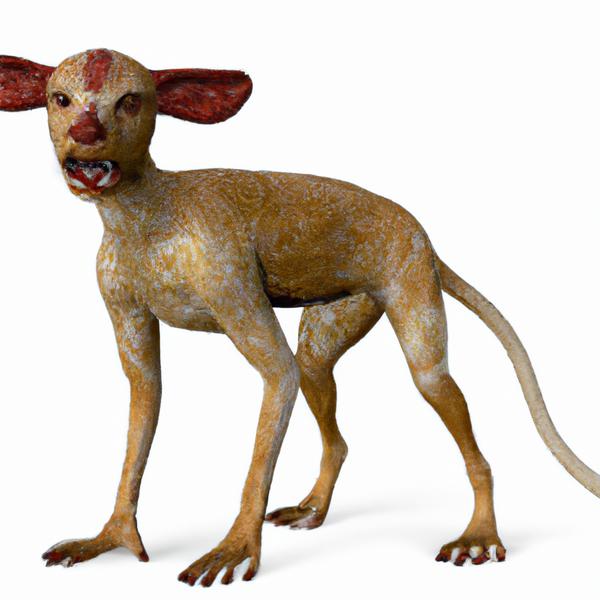
King Rat
Boxer Shepherd vs King Rat
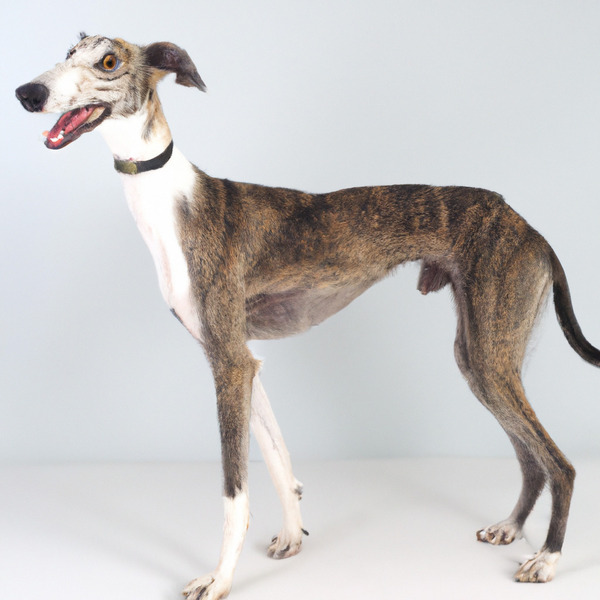
Lurcher
Boxer Shepherd vs Lurcher
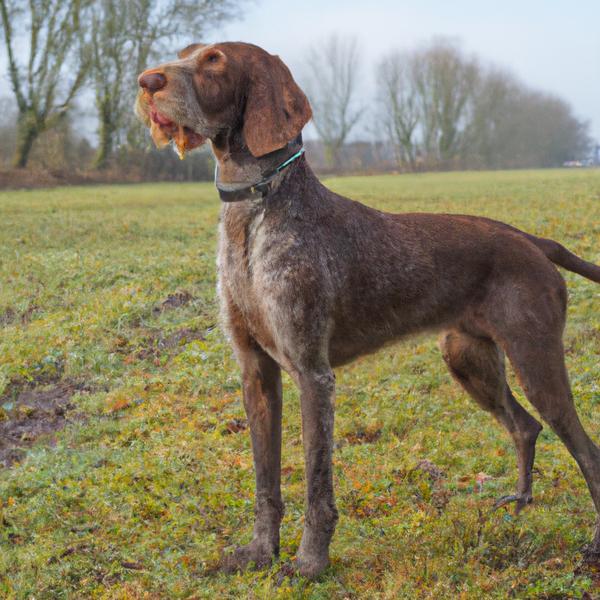
German Wirehaired Pointing Vizsla
Boxer Shepherd vs German Wirehaired Pointing Vizsla

Akita Inu
Boxer Shepherd vs Akita Inu

Boston Iggy
Boxer Shepherd vs Boston Iggy
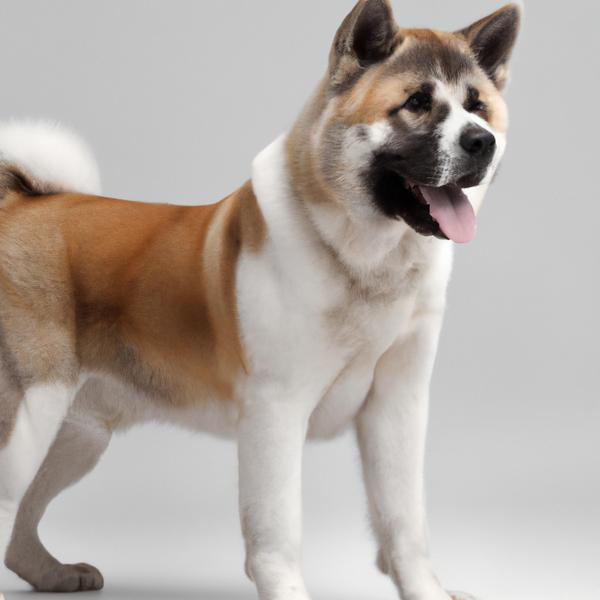
Akita Shepherd
Boxer Shepherd vs Akita Shepherd
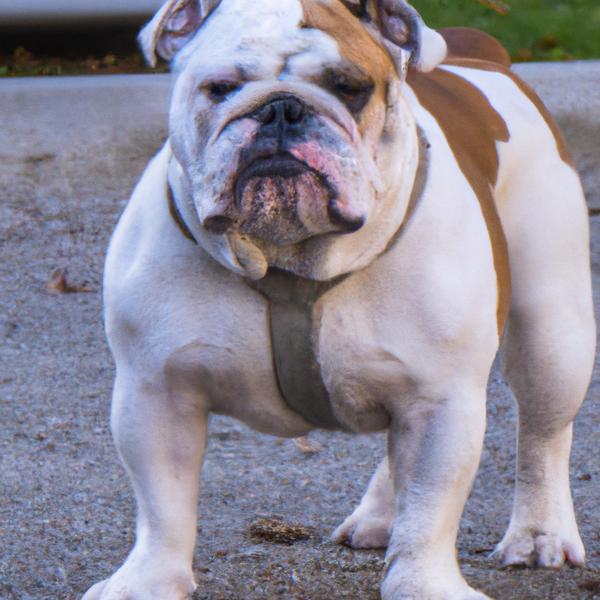
Bulldog
Boxer Shepherd vs Bulldog

American Cocker Spaniel
Boxer Shepherd vs American Cocker Spaniel

Rhodesian Ridgeback
Boxer Shepherd vs Rhodesian Ridgeback
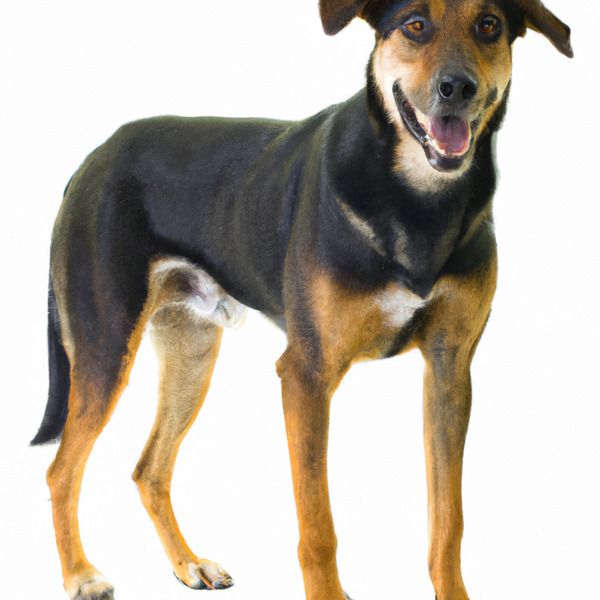
Huntaway
Boxer Shepherd vs Huntaway

Silky-Pin
Boxer Shepherd vs Silky-Pin
